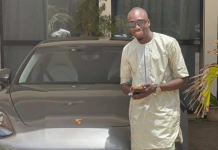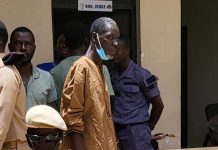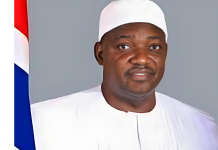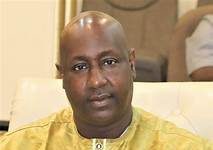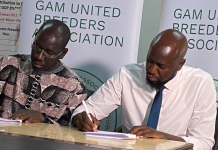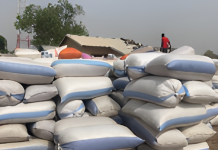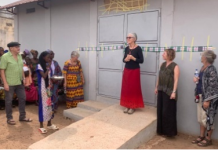This question is the subject for debate. We hope each member party of the Group of Six will come up with a position on this matter.
To contribute to the debate, it is important for every Gambian to know what elections are. The principle of one person one vote provides the basis of our sovereignty as individual citizens. It is the cornerstone of democratic and republican values. Without it there can be no democracy or a republic. This makes all citizens equal from the president down to every voter.
The republic must have instruments and institutions to safeguard and protect the principle of one person one vote so that those who govern will derive their authority from the consent of each sovereign Gambian. The sovereignty of the individual Gambian citizen is therefore inalienable and non negotiable.
We are talking about electoral reform today because of the failure to have empowered each sovereign Gambian to know that they possess equal power as the person who occupies the highest office to determine who manages the affairs of their country. If each was equally conscious of one sovereign power then no one would be able to use inducement or intimidation to fraudulently take control of society either through arms or elections which are not free, fair or genuine.
Elections constitute the means through which an empowered citizenry would periodically conduct political auditing to remove those guilty of abuse of authority, impunity or misrepresentation and replace them with those with a clean slate who should also prove themselves within the term allocated to them.
Hence, a ‘No Election Agenda’ is not an agenda for a sovereign people. What a sovereign people strives to do is to promote the existence of instruments, institutions, strategies and tactics that would lead to free, fair and genuine elections. This is what gives rise to constitutional and electoral reforms affecting governance.
The Gambia Opposition For Electoral Reform (GOFER) informed the media that abuse of incumbency through the monopoly of state resources, personal and media for use to maintain the status quo had led to the sustenance of self-perpetuating rule. Hence, they decided in 2012 to take a stand to promote electoral reform so that there will be free, fair and genuine elections. They adopted the policy of non-participation in the National Assembly and Council elections. They did not ask for a boycott and many independent candidates did extremely well in either winning seats or getting their deposits.
The low turnout in the Council elections confirmed all the more that the ruling party does not have monopoly over the voters. Hence, the fact revealed that even though there is abuse of incumbency there is also evidence of loss of political base by the ruling party.
The question now arises, what challenges confronted the GOFER as they face another electoral cycle and how should those challenges be addressed?
The first point to note is that all political parties are registered to participate in elections. Any registered political party which aims to take over power in anyway other than elections would not be able to legally operate as a political party.
However, if the ground is not level, it would have difficulty in achieving its aim in taking over. Hence if there is monopoly of state resources and media to promote and consolidate the power base of the incumbent, then measures must be taken to facilitate reform to create grounds that are more conducive to free, fair and genuine elections. This is what gave rise to proposals and demands by GOFER in May 2015 for electoral reform.
Some people are of the view that if reforms are not undertaken, it is better to boycott the forthcoming elections. Since political parties are registered to participate in elections, to fail to participate or boycott elections must be a strategy or tactic. A strategy should lead you to the eventual goal. The tactic must lead you to the immediate goal that would take you a step further to the ultimate goal.
What strategy and tactic should GOFER adopt under the present political situation? The answer depends on what GOFER wants to achieve. When a strategist wants electoral reform, you focus on the factors and consequences behind the abuse of incumbency and power. This is what will put pressure on a government to reform in order to have a semblance of integrity.
On the other hand, if a strategist and tactitician want democratic change, one must emphasise the strength and power of the people in order to organize and galvanise them if the people truly want change,
Hence, if you want to know whether GOFER should participate in elections, the answers should be sought from the sovereign Gambian people. They are the ones who should indicate whether they want to continue to live under the present order or want a new order. If GOFER discovers that the people want a new order, they should develop the strategy and tactics that will enable them to have the power to bring about a new order.
It is the people of a country who could be induced; it is the people of a country who could be intimidated. It is the people of a country also who could decide to cast protest votes against an incumbent regardless of the degree of inducement or intimidation.
Hence, any political policy maker or citizen should only recommend boycott or participation if one can properly analyze the situation on the ground to know the state of mind of the people.
What is evident on the ground is that in the absence of a second round of voting if the opposition puts up different credible candidates they will be divided and would lose. But if they put up one credible candidate they are likely to win. This is what has spread on the ground. This is why the GOFER should continue to propagate their demand or electoral reform but in the absence of that change, they should work on a credible coalition strategy and tactic that would enable them to put up one credible candidate against the incumbent.
Those who recommend a boycott should give evidence of how they got that impression from the vast majority of Gambian people that even if the opposition parties have one credible candidate, inducement and intimidation will bar the people from voting for change.
Let the debate continue like civilised and mature sovereign people. Awareness is the mother of democratic consciousness which alone gives rise to an empowered sovereign citizen. Without such a citizen, there cannot be any democratic change.

